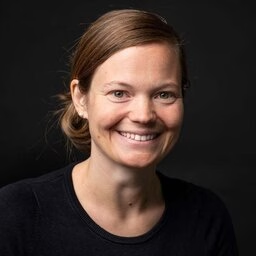Why we exist?
Challenges of the Energy Transition
There are many challenges we face regarding the energy transition and its implications for climate change, such as decarbonization of industries, cities, organizations, and our individual homes. Often, the energy transition is managed as a technological transition; however, a large part of the energy transition is especially a social transition that requires new business and finance models, a new type of collaboration between public and private stakeholders, and a re-evaluation of the driving values of our society towards sustainability and inclusion. This requires answering questions related to politics, economics, technology, and society.
A Holistic Perspective for Meaningful Change
In order to achieve the climate ambitions outlined in the Paris Agreement, expertise from different backgrounds needs to be combined to create a holistic perspective and approach. This will help develop the required level of energy transition literacy for different stakeholders to work together in accelerating the transition.
Erasmus University’s Unique Role
Erasmus University’s Unique Role Rotterdam: A Thriving Innovation Hub With its strong foundation in social sciences, business, economics, and law, Erasmus University Rotterdam is uniquely positioned to provide an interdisciplinary perspective. By fostering collaboration between students, industry leaders, governments, and NGOs, we help accelerate a just, inclusive, and sustainable energy transition.
Rotterdam: A Thriving Innovation Hub
Home to Europe’s largest port, a strong industrial base, and a growing green tech sector, Rotterdam is at the forefront of energy transition innovation. By working together, we can push boundaries, drive sustainable solutions, and position Rotterdam as Europe’s most resilient and future-ready city.
How We Make a Difference
Erasmus Centre for Energy Transition (ECET) was established in response to a request from 16 companies urging Erasmus University to take a more active role in accelerating the energy transition. Their goal: equip future leaders with the knowledge, skills, and mindset needed to navigate this complex global challenge. Recognising that the energy transition is not just a technical issue but a multidisciplinary challenge, ECET integrates expertise in system thinking, economic modeling, leadership, stakeholder management, regulatory innovation, AI, and more. By leveraging Erasmus University s diverse expertise, ECET aims to serve as a hub for driving the energy transition by shaping innovative pathways toward a sustainable, inclusive, and carbon-free energy future.

Our Vision: The Energy Transition Valley
ECET envisions Erasmus University and its surrounding region as a hub for innovation and leadership in the energy transition an Energy Transition Valley. Our goal is to build a dynamic ecosystem that fosters research, collaboration, and sustainable progress, positioning South Holland and the Netherlands at the forefront of the global energy transition.
3 Core Objectives of ECET
- Societal Growth: Educating Future Energy Leaders: We aim to equip all EUR students and future energy leaders with the knowledge, skills, and mindset needed to navigate the energy transition and create awareness of the deep connection with climate and ecological change.
- Societal Impact: Advancing Multidisciplinary Energy Research: As stated earlier, acceleration of the Energy Transition will not only be a technical affair but asks for a multidisciplinary holistic approach involving many of EUR’s key strengths. ECET wants to play a crucial role to support transdisciplinary research on the following themes: Enhancing Energy System Efficiency & Flexibility: Driving optimization for a smarter, more resilient energy infrastructure. Accelerating Clean Technology Adoption: Advancing hydrogen, wind, and solar through innovation in law, regulation, energy markets, AI, and data analytics and critical raw materials. Navigating the Political Economy of Energy Transition: Addressing the economic and policy dynamics shaping the future of energy. Empowering Citizen Participation & Multilevel Governance: Ensuring inclusive decision-making in the energy transition. Tackling Energy Poverty & Promoting Inclusion: Creating equitable access to sustainable energy for all.
- Societal Engagement: Building Learning Communities: AT ECET, we want to bridge academic, business, government & society to build (international) partnerships & communities that can learn and innovate together. We firmly believe that the energy transition can only thrive through collective learning and innovation. At EUR, we maintain an outward focus, staying deeply connected to the societal challenges by actively eng ag ing with diverse stakeholders in the energy transition. ECET serves as the vital connector in co-creating societal engagement, learning initiatives, and events that address these complex and urgent challenges of the energy transition.

Upcoming events and programmes
Executive Education
- Navigating Energy Transition Complexities (starting April 20th 2026)
- Leading the Energy Transition (Starting June 16, 2026)
Degree Education
- MA Societal Transitions (MA starts in September 2026, electives November)
- Inclusive Energy Transition (honours programme, starting November 2026)
Learning Community & Talent & Knowledge events
- Erasmus Centre for Energy Transition Symposium: How economists influence the energy transition (23 January 2026)
- Events agenda will follow shortly.

EUR alumnus
"We understand the energy transition is not a purely technical issue. It will require understanding of geopolitical developments, national policies and politics, technical solutions at competitive pricing, economic modeling and risk reward balances, capital markets with broad social implications."
Eelco Hoekstra
CEO Silvania
Get involved with us

Students
Join the Energy Club
Be part of a dynamic student-led community and attend exciting energy events!
Explore Opportunities
Interested in a thesis, internship, or research/consultancy project in energy transition? Contact us at ecet@eur.nl
Collaborate with us
Have an idea or initiative? Let’s work together to drive innovation in the energy sector!

Researchers
Join Our Research Community
Connect with Nicolette Stehouwer-den Hollander (stehouwer@eur.nl) and engage with fellow researchers.
Apply for the ECET Research Grant
Secure funding for your energy transition research initiative.
Collaborate & Co-Create
Work with us on research funding, sponsorships, and seminars.
Explore Innovation
Discover cross-functional research opportunities and partnerships.
Engage with Industry Leaders
Set up impactful research initiatives with ECET.
Partners
Strategic Partnership
Join the Energy Transition Valley to help shape the energy future.
Research Partnership
Access expert knowledge and cutting-edge research.
Talent Partnership
Connect with skilled energy professionals.
Learning Community
Become part of a dynamic community for collaboration and innovation.

Professionals
Navigate Energy Transition
Challenges Learn through our specialized programmes.
Lead the Energy Transition
Gain the latest tools, insights, and skills.
Tailor-Made Programmes
Contact us at ecet@eur.nl for custom solutions for your team.
Join Our Learning Community
Collaborate and expand your network with industry experts.
Meet our team
 Malou Kroezen
Malou KroezenManaging Director
Email address Ronald Huisman
Ronald HuismanAcademic Director & Lead ESE
Email address Yashar Ghiassi-Farrokhfal
Yashar Ghiassi-FarrokhfalAcademic Lead RSM
Email address Leonie Reins
Leonie ReinsAcademic Lead ESL
Email address Nicolette Stehouwer-den Hollander
Nicolette Stehouwer-den HollanderBusiness & Innovation Manager
Email address Angelica Vannucci
Angelica VannucciSTM support & design
Email address Evgeniia Trufanova
Evgeniia TrufanovaProgramme Manager Executive Education
Email address Giorgi Dundua
Giorgi DunduaLearning Designer Executive Education
Email address Bieneke Verheijke
Bieneke VerheijkeProgramme Manager Learning Communities
Email address Jagoda Albin
Jagoda AlbinStudent Assistant
Email address
